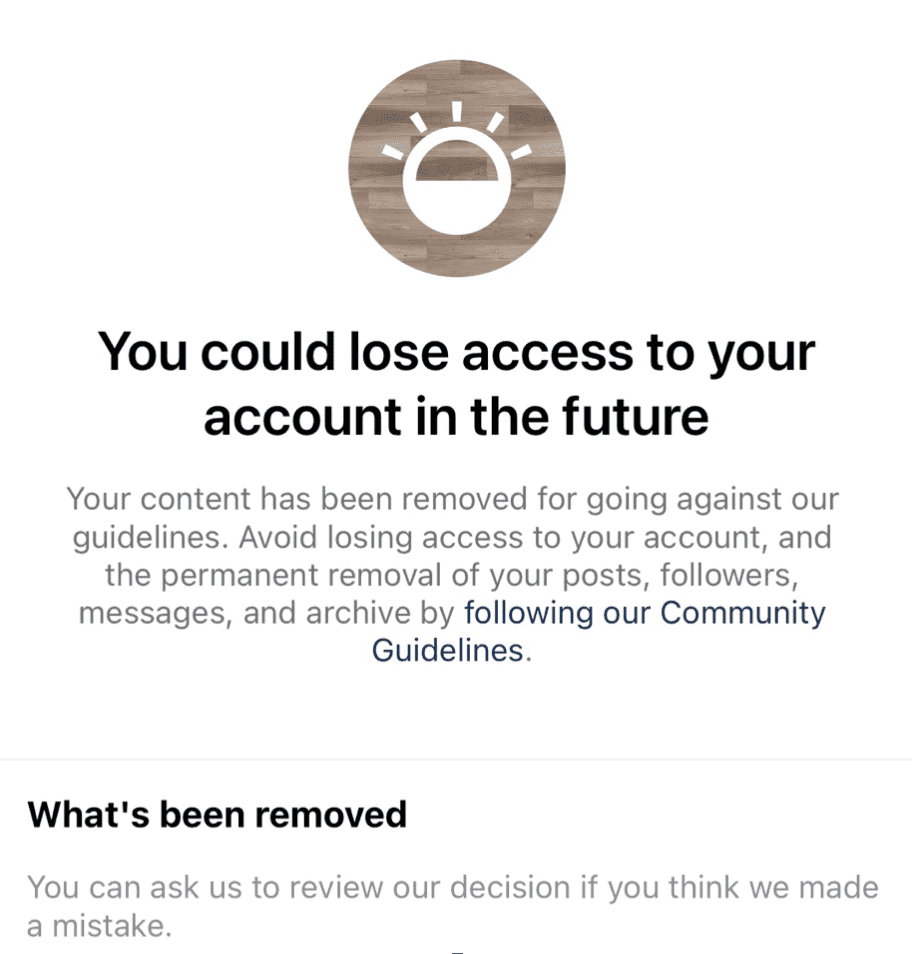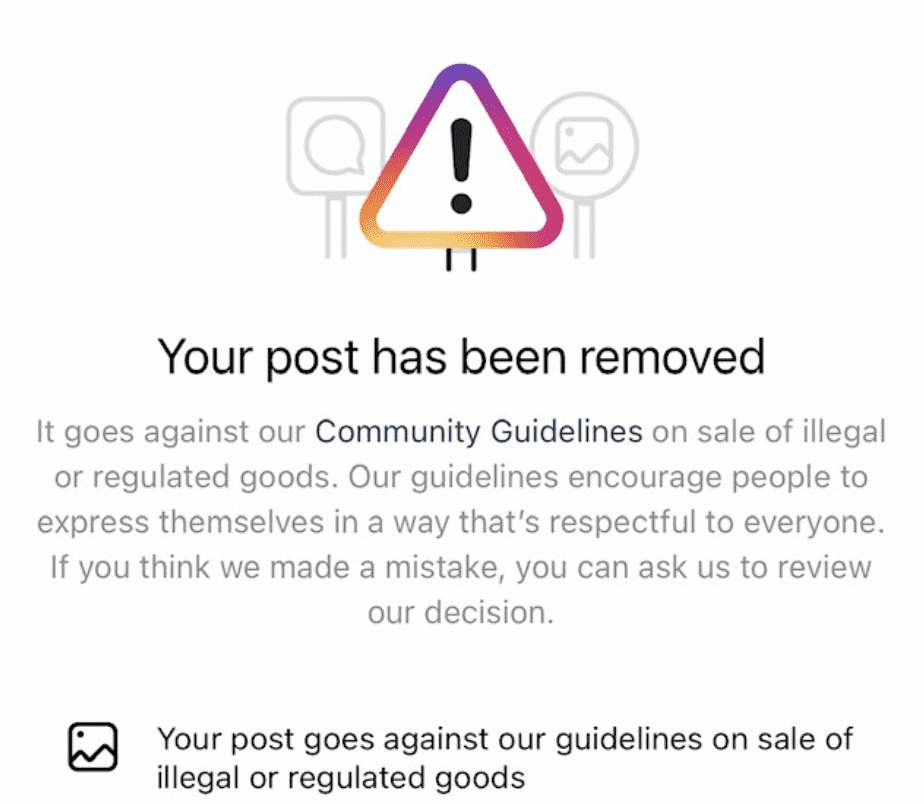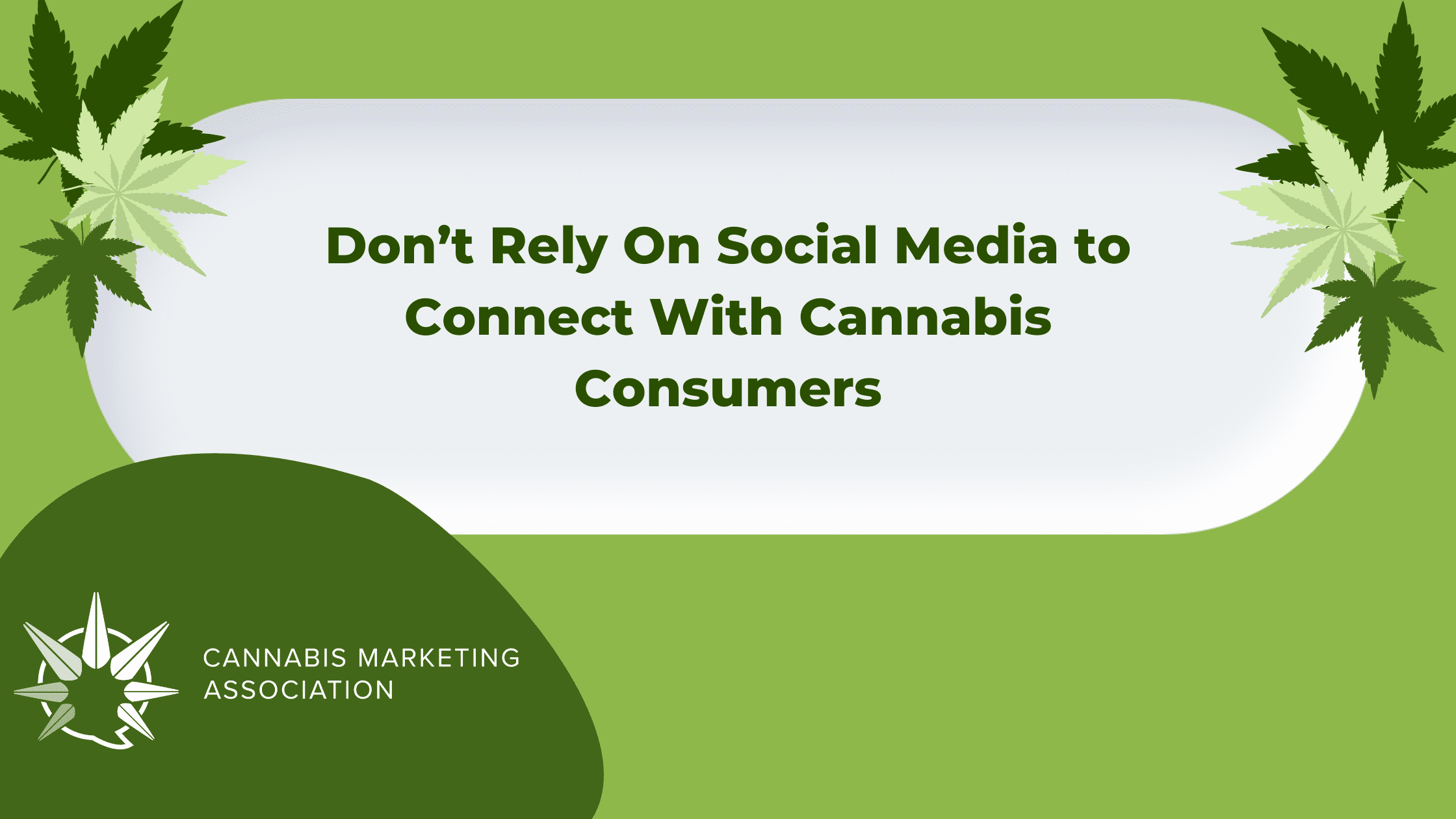The cannabis industry still prioritizes social media marketing. But should it? The reasons to stay or go might surprise you.
By Aaron Rosenbluth, Content Director, Hybrid Marketing Co.
(Image Credit: Shutterstock)
Like most people, the cannabis industry is obsessed with social media for two primary reasons:
-
Most of us are social media addicts.
-
Many brands successfully use social media to increase revenue.
Still, while other industries can freely market products, services, and ideas on these platforms, the cannabis industry can’t.
At least, not easily.
I won’t use this blog to explain why social media isn’t cannabis-friendly. I also won’t give you an in-depth strategy for creatively circumventing Terms of Service and Community Guidelines.
There are enough pieces discussing those details. I’ve written that blog before, too. A Google search will return countless pages that give the same four guidelines:
-
Don’t sell cannabis on social media.
-
Don’t show consumption.
-
Use hashtags carefully.
-
Don’t buy followers or engagement.
These are valid—you should follow them—but it isn’t all cautionary. You’ll also frequently find these four helpful tips:
-
Respond to post comments and direct messages, and publish content encouraging audience participation.
-
Use social media to educate and entertain.
-
Post regularly.
-
Carefully select imagery.

(Image Credit: Shutterstock)
Let’s move on.
I reluctantly joined Facebook in 2008 at the behest of my baby boomer parents who insisted I create an account to stay connected with family and friends.
I hesitated to join because I prefer analog relationships and experiences. I also had a long-dormant MySpace account plaguing me like a digital hangover. What would change with a Facebook account?
A lot, it turns out.
I embraced Facebook and then Instagram with gusto, and social media publishing eventually became a critical aspect of my career.
Like most, I used the platforms enthusiastically, naive to the creeping extremism, misinformation, and social strife growing beneath the surface.
My first inkling of trouble arose after I started managing cannabis industry social media accounts.

(Image Credit: Author)
Everything worked until it didn’t.
We happily managed cannabis industry accounts for several years before restrictions (ahem, shadow bans) due to Terms of Service and Community Guidelines “violations” burst our bubble.
I tried every strategy, angle, and trick in the social media marketing playbook to circumvent the restrictions. And with every algorithm update, we pivoted.
On Instagram, we moved from static images to carousels, stories, and now reels, and then back to carousels. It’s a rollercoaster.
We used language carefully. We educated and entertained instead of selling. We tweaked our content styles over and over and over again.
But the restrictions continued, so I deepened my research, hoping to find the magic piece of information that would crack the code.
What I found profoundly changed my view of these platforms.

(Image Credit: Author)
Social media platform providers’ goals and interests directly oppose the cannabis industry’s goals and interests.
Like any business, the cannabis industry primarily exists to generate revenue.
And as a marketer, my role in this industry is to help our cannabis business partners increase revenue.
Still, I believe in the wellness potential of this plant—along with its potential for fun—and I have tremendous respect for countercultural leaders whose ideas bring us closer to federal legalization every day.
Cannabis helps rather than harms. Can the same be said about social media?
“This technology exerts such a powerful pull on our psychology and our identity, and is so pervasive in our lives, that it changes how we think, behave, and relate to one another. The effect, multiplied across billions of users, has been to change society itself.”
–Max Fisher, The Chaos Machine
Social media platforms concern themselves with one thing: Attention.
So their algorithms use human psychology and deeply ingrained social mores to increase engagement and time spent on the platforms.
Unfortunately, outrage and negativity spark engagement, so that’s what the algorithms prioritize.
The effects are often catastrophic. Americans rarely hear about the extreme violence and genocide in Myanmar (and elsewhere) experts attribute directly to social media.

(Image Credit: Shutterstock)
Platforms aren’t interested in the perpetuation of meaningful information. They’re echo chambers designed to provoke outrage among users for no reason but to keep them eternally engaged for profit.
And it’s profoundly impacting society’s collective mental health, which begs this question:
Should cannabis brands use harmful tools for marketing a product that has the potential to improve psychological and physical well-being?
I’ll let you determine the answer to that question yourself.
But understand this: Social media platforms, Meta, in particular, don’t want the cannabis industry operating there.
It’s painfully clear.
While extremists, influencers, bots, hucksters, and alcohol brands freely exploit social media to generate awareness, convert believers, and increase revenue, the cannabis industry cannot.
We’re relegated to the shadows of each platform, constantly iterating to find a way to get our point across without using the words and images we’d ideally like to.
And our audiences aren’t seeing our posts.
In 2022, a social media win for cannabis brands is reaching less than 1% of your total audience, and that’s if you’re lucky.
As an industry operating on social media, we’re scrambling for a piece of digital real estate we rent rather than own.
Should we? Honestly, I’m not sure.
I’m hopeful that as more people become aware of social media’s impact, young folks, in particular, will push Silicon Valley and regulators to change the functionality of each platform in a way that prioritizes mental health and limits polarization.
Still, the decision to operate on social media is yours.
You should ask: Are the efforts and budget you put into social paying off?
Regardless of size, virtually every client we hear from says budget is an issue. If you operate with a limited budget, I’d suggest you place the bulk of your efforts into something that provides a significant return.
Great marketers overcome roadblocks by engineering new paths. Social media is obviously a roadblock for our industry; however, there are better paths to generate awareness, loyalty, and revenue.
Are you bold enough to invest in them?
Author
 Aaron is Hybrid Marketing Co’s Content Director. He loves writing blogs. He’s written so many blogs that he’s lost count. Beyond his skills as a writer and storyteller, he’s an obsessive reader and researcher. Aaron writes on subjects ranging from cannabis to collaboration, social equity to HR software, and interior design to cybersecurity. His words attract, engage, and convert. By the way, Aaron hates the phrase “content is king.”
Aaron is Hybrid Marketing Co’s Content Director. He loves writing blogs. He’s written so many blogs that he’s lost count. Beyond his skills as a writer and storyteller, he’s an obsessive reader and researcher. Aaron writes on subjects ranging from cannabis to collaboration, social equity to HR software, and interior design to cybersecurity. His words attract, engage, and convert. By the way, Aaron hates the phrase “content is king.”
Discover more cannabis marketing content and visit CMA’s blog.
For more information on becoming a member of Cannabis Marketing Association, visit our membership page.


